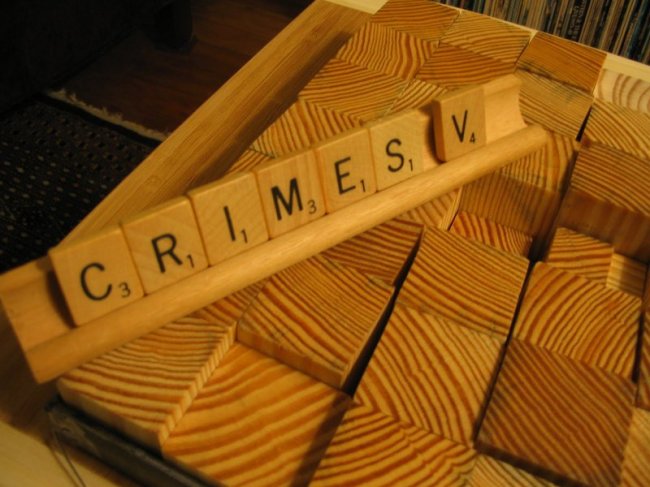 The power of the Passover seder lies in the fact that it’s always the same. And always different.
The power of the Passover seder lies in the fact that it’s always the same. And always different.
In our family, certain foods are non-negotiable – Big Grandma’s matzo ball soup, Little Grandma’s chremsels, Manischewitz. Other parts of the menu vary. Lately I’ve been substituting Yeminite charoset for the Ashkanazik standard. I’ve eliminated tzimmes and added matzo crunch.
Likewise, each year, our family uses the same Haggadah we’ve been using for years. The set was handed down to me in the 1990s, when my parents updated to a newer edition. We wouldn’t abandon these old books for the world. The pages are stained with the wine and charoset of Passovers past, and four separate volumes are marked up with the names of the loved ones, many long gone, assigned each year’s parts – first in my father’s hand and then in mine. You couldn’t ask for more tangible connection to tradition.
And we would never dream of changing or omitting the core texts, like the blessings, the four questions and Chad Gadya, to name just a few. But lots of the translations and footnotes feel dated, or just like missed opportunities to explore something more.
So while we stick with the old, I sometimes add something new. This year it was poetry. Early Monday afternoon, between cooking the chicken and setting the table, I scoured my bookshelves, and picked out four poems to augment the traditional seder text. I marked the pages, and scattered the books around the table, alongside the Haggadahs, and at the appropriate time, asked someone to read.
Karpas
The first thing you eat at the seder is a green vegetable dipped in salt water. In our house, it’s parsley. Sometimes at this point we read the note in our Haggadah about springtime and renewal. Sometimes we read lines from the Song of Songs about winter being over. This year, we read this:
David Budbill
Out walking in the swamp picking cowslip, marsh marigold,
This sweet first green of spring. Now sautéed in a pan melting
To a deeper green than ever they were alive, this green, this life,
Harbinger of things to come. Now we sit at the table munching
on this message from the dawn which says we and the world
are alive again today, and this is the world’s birthday. And
even though we know we are growing old, we are dying, we
will never be young again, we also know we’re still right here
now, today, and, my oh my! don’t these greens taste good.
Plagues
There are lots of ways to bring to life the ten plagues the Egyptians suffered before the Israelites fled. I read on Facebook that my rabbi was using ping pong balls to simulate the seventh plague, which is hail. I chose this:
Kay Ryan
Like a storm
of hornets, the
little white planets
layer and relayer
in their high orbits,
getting more and
more dense before
they crash against
our crust. A maelstrom
of ferocious little
fists and punches,
so hard to believe
once it’s past.
Pharaoh: Arch-Tyrant
After we recite the plagues, I like to read a section from Rabbi Mordecai Kaplan’s New Haggadah, in which he expands on the concept of the Pharoah. Kaplan writes, “….Pesach means more than that first emancipation the Israelites won from Pharoah when they left Egypt…It means emancipation wrested from the yoke of conquerors, freedom from the bonds of slavery, and the right of peoples to self-determination.”
This year I augmented that reading with this poem:
Langston Hughes
Democracy will not come
Today, this year
Nor ever
Through compromise and fear.
I have as much right
As the other fellow has
To stand
On my two feet
And own the Land.
I tire so of hearing people say,
Let things take their course.
Tomorrow is another day.
I do not need my freedom when I’m dead.
I cannot live on tomorrow’s bread.
Freedom
Is a strong seed
Planted
In a great need.
I live here, too.
I want freedom
Just as you.
Hallel
Shortly before the meal, we recite a series of Psalms praising God. I included my fourth and last poem here.
Anne Sexton
There is joy
in all:
in the hair I brush each morning,
in the Cannon towel, newly washed,
that I rub my body with each morning,
in the chapel of eggs I cook
each morning,
in the outcry from the kettle
that heats my coffee
each morning,
un the spoon and the chair
that cry “hello there, Anne”
each morning,
in the godhead of the table
that I set my silver, plate, cup upon
each morning.
All this is God,
right here in my pea-green house
each morning
and I mean,
though often I forget,
to give thanks,
to faint down by the kitchen table
in a prayer of rejoicing
as the holy birds at the kitchen window
peck into their marriage of seeds.
So while I think of it,
let me paint a thank-you on my palm
for this God, this laughter of the morning,
lest it go unspoken.
The Joy that isn’t shared, I’ve heard,
dies young.
I’m hanging onto these poems for next year. We’ll probably read at least some of them again, just like some of the recipes we’ve added over the years, and have become a part of our tradition.










